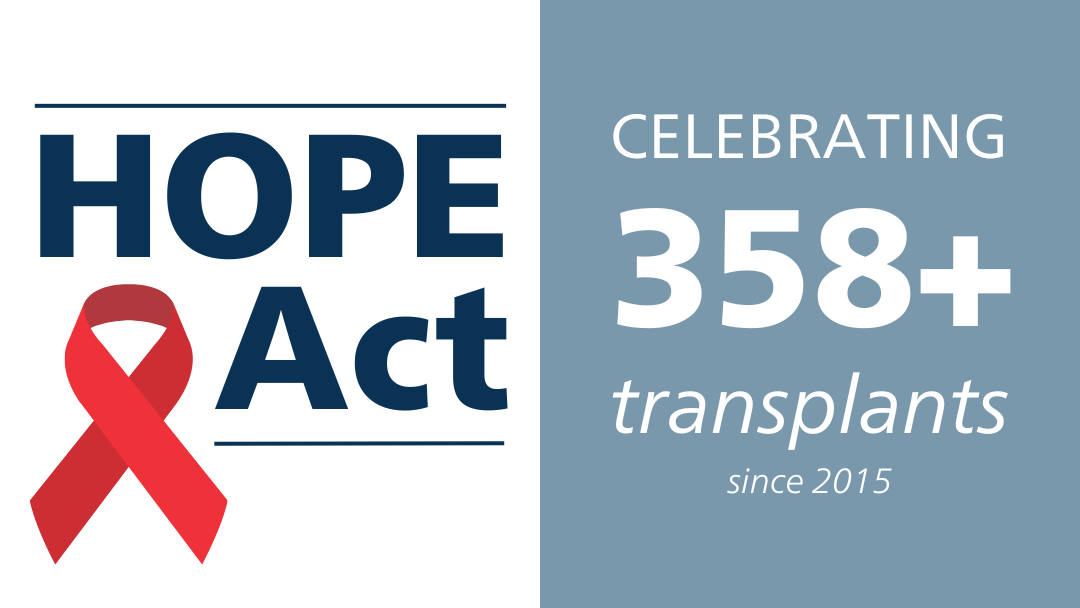News
The HOPE Act: Organ Donation Equity & The LGBTQ+ Community
May 30, 2023

Did you know that being HIV positive doesn’t disqualify you from becoming an organ donor?
The HIV Organ Policy Equity Act (HOPE Act) was signed into law on November 21, 2013. It aimed to help overcome the shortage of organs for transplantation in the US by allowing for the use of organs from HIV-positive donors in HIV-positive candidates under approved research protocols.
This law was a significant milestone in the fight against HIV/AIDS, and it has since been updated to allow for the transplantation of organs of any type under HOPE Act protocols.
Organ Transplants for HIV-Positive Patients
Before the HOPE Act, organs from HIV-positive donors could not be used for transplantation. This law changed the organ transplantation by allowing for the use of organs from HIV-positive donors to be transplanted into HIV-positive candidates. Initially, only kidney and liver transplants were authorized under HOPE Act protocols. However, in May 2020, the provisions were updated to allow for organs of any type to be transplanted under HOPE Act protocols. This change has opened the door for more HIV-positive candidates to receive life-saving transplants.
Saving Lives and Reducing the Stigma
The HOPE Act has had a significant impact on the LGBTQ+ community, which has been disproportionately affected by HIV/AIDS. The law has helped address the shortage of organs for transplantation, particularly for HIV-positive candidates who may also be members of the LGBTQ+ community. The HOPE Act has not only brought hope to many individuals who were previously unable to receive life-saving organ transplants, but by allowing the transplantation of organs from HIV-positive donors, it provides the chance for many HIV positive individuals to become donor heroes and save and improve many lives through donating organs, eyes and tissues.
Additionally, the HOPE Act has helped reduce stigma surrounding HIV/AIDS, which has historically been associated with the LGBTQ+ community. By highlighting the importance of treating HIV-positive individuals with dignity and respect, the HOPE Act has helped promote greater understanding and acceptance of the LGBTQ+ community.
As of November 2022, 358 organs have been transplanted between HIV positive donors and recipients since the seven years after being implemented.
Moving forward, it is important to continue to address the unique challenges facing the LGBTQ+ community, including the ongoing HIV/AIDS epidemic. By passing legislation such as the HOPE Act and continuing to support research and education, we can continue to make strides in improving the lives of those affected by HIV/AIDS and other health disparities within the LGBTQ+ community. Allowing for even more individuals to have the opportunity to register as an organ, eye and tissue donor to save and improve more lives.
About Sierra Donor Services
Sierra Donor Services (SDS) serves nearly three million people in Northern California and Northern Nevada. We are an exceptional team of professionals dedicated to saving and improving lives by connecting organ and tissue donation to the patients who need them. We strive to extend the reach of each generous donor’s gift to those who are always profoundly grateful for them.